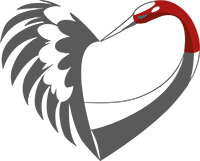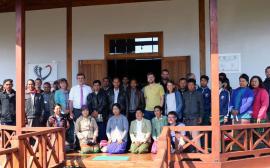In 2010 the United Nations officially recognised the human right to clean water, and sanitation. The recognition was a reaction to increased disease burden due to untreated sewage, which is a particular threat in wetlands like Indawgyi Lake. In Indawgyi the water level rises seasonally, hence the widespread pit latrines located in the flood zone, which simply collect the sewage in a hole, are not suitable, as the sewage can mix with the lake water during the monsoon season and people can get exposed to pathogens causing serious diarrhoea.
The Brandenburg University of Technology (BTU) conducted water quality tests in Indawgyi Lake in 2018 and documented a serious decline in water quality near the villages. Consequently, Fauna & Flora International (FFI) initiated a sanitation project in collaboration with the social enterprise Wetland Works. The project focuses on water quality research, awareness raising campaigns, and the installation of simple, yet affordable household sanitation systems, which can be built with locally available products. Five villages located in the flood prone zone of Indawgyi Lake have been selected for the first phase of the project. FFI is applying a lottery system for flood prone households to receive financial incentives for the installation of the first sanitation systems in order to increase their acceptance.

